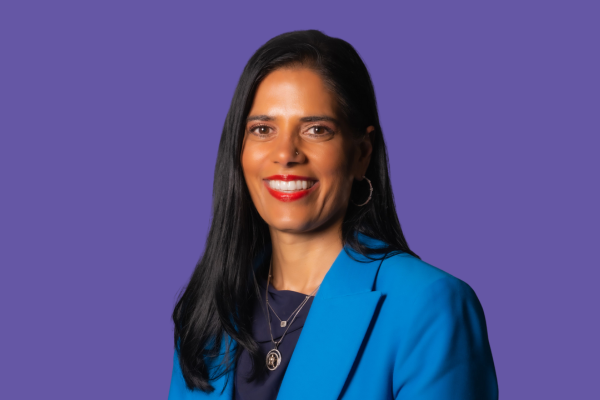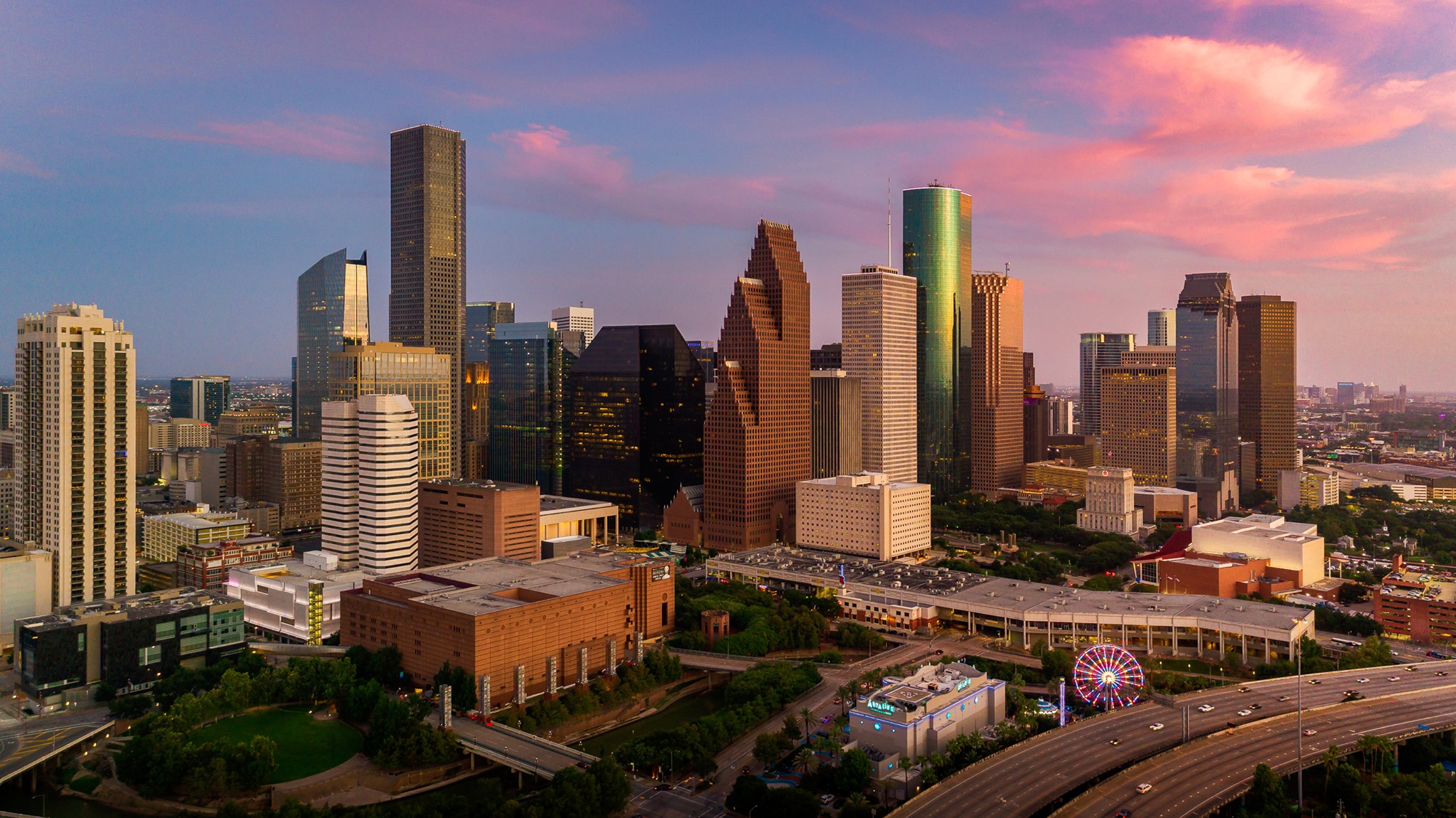Bob Harvey Remarks at Partnership 2021 Annual Meeting
Published Jan 26, 2021 by Maggie Martin
Greater Houston Partnership President and CEO Bob Harvey provided an update on the Partnership's Houston Next strategic plan and talked about major 2020 accomplishments at the organization's Annual Meeting on January 26.
Thank you, Amy.
And thank you again for your willingness to serve as chair of the Partnership this year.
I'm really looking forward to working with you.
Amy's remarks hit right at the core of our most pressing issue as we begin to look beyond the pandemic.
For several years following the great recession - call it 2011, '12, '13 and much of '14 - Houston was growing at an exceptional rate in terms of population, employment, and regional GDP.
Driven by the shale revolution, which subsequently drove the petrochem construction boom, Houston was near the top of every "top cities" list.
That began to change as oil prices fell in late '14, and we've been on an economic rollercoaster ever since.
To build sustained momentum in this new decade, we must focus, as Amy said, on positioning Houston as a technology and innovation hub, and I am so pleased with the progress we have made in this regard over the past several years.
But we know we must continue to advance.
The notion of building a strong, diverse, 21st-century Houston economy isn't new.
It is a key component of the Houston Next strategy we unveiled two years ago.
We said we would focus on developing a more diverse economy even as we advanced two other objectives: continuing to improve the quality of life in Houston and ensuring opportunity for all.
Rest assured that we are putting a great focus on marketing Houston to prospects in our primary areas of focus, beginning with Energy 2.0, which is our term for both startups and established companies that are targeting new energy technologies and business models in a low-carbon world - companies that help reduce emissions, contribute to sustainability, or simply enhance energy efficiency on a global scale.
We are also pursuing companies in the life science, manufacturing and logistics, aerospace, and digital technology sectors - plus any company looking to move its headquarters to a more business friendly, diverse, and globally-minded city.
We are working closely with our regional allies that extend from the city of Houston and the Texas Medical Center to the outlying cities and counties in the region.
We are also working with the region's major real estate developers, as they often hold the key to a successful recruitment.
We've had some great wins of late, from United Imaging in the life science sector, to Axiom Space in the aerospace sector, to Hewlett Packard Enterprise - Houston's newest Fortune 500 headquarters - which has helped validate Houston's position as a diverse, talent-rich technology-oriented city.
It takes wins at this scale to move the needle in a region the size of Houston.
But it also takes the continued growth of the entrepreneurial and startup sectors to build a platform for innovation and future success.
I'm thankful for our partners at Houston Exponential and the HX Venture Fund, who work in the startup space every day. And startup development organizations such as The Cannon, Plug and Play, and MassChallenge, who are equipping startups with the tools and connections they need to grow.
I'm very much looking forward to the opening of The Ion, Greentown Labs, and TMC3 that Amy mentioned, all of which are located in the Innovation Corridor.
But we have more to do in other areas.
One of our immediate challenges is reskilling and redeploying the 150,000 Houstonians who remain without jobs due to the pandemic.
To support a strong economic recovery, it is essential that we focus on upskilling these displaced workers into new occupations that pay a good salary.
Leveraging our UpSkill Houston consortium of employers, educators, workforce and social service agencies, we are launching a regional task force to develop a rapid-action plan focused on this short-term upskilling and job placement need.
In particular, we will be looking to the region's community colleges for support.
With help from JPMorgan Chase, UpSkill Houston is already focused on displaced oil and gas workers, preparing them for Energy 2.0 careers with companies such as Sunnova, a homegrown solar company that has achieved a market cap of just under $5 billion since going public in 2019.
Moving beyond economic development to the second area of focus, quality of life, we should celebrate the improvements we are making every day in our parks, bike trails, and cultural arts facilities. We are twice the city we were just a few years ago.
But we must also keep working to ensure that major infrastructure for mobility and flood mitigation continues to move forward.
Infrastructure always involves difficult tradeoffs, and the responsible agencies have been seeking and incorporating input into how to make these programs more neighborhood friendly.
As one important example, I am hopeful that the North Houston Highway Improvement Project along I-45 can move forward, with continued input from nearby residents, so that we don't do anything to choke off downtown or to keep inner city residents from accessing jobs in the suburbs.
Please make no mistake - we need to continue to develop Houston's infrastructure if we hope to continue to grow. And growth creates opportunity, as we have seen in Houston for 185 years.
On the third strategic priority called opportunity for all, we will continue to focus on improving education systems in the region.
Pre-K through 12 has seen a significant setback with the pandemic.
Too many of our kids are not keeping up in this largely virtual environment, and many have dropped out completely. We will have a huge task this year bringing these kids back to proficiency.
Fortunately, we have been building new systems and approaches under the leadership of Good Reason Houston, the non-profit that the Partnership, the Houston Endowment, and the Kinder Foundation helped launch a couple of years ago.
Good Reason Houston has a model for improving the performance of urban public schools drawn from success elsewhere and has begun to demonstrate success in several districts in the Houston area.
And we also have the benefit of House Bill 3 from the last legislative session that steered public money into programs proven to benefit kids.
Higher education also represents an opportunity in Houston.
Put succinctly, how do we continue to develop the academic institutions within the region so we can offer quality and access to our diverse population and attract the best faculty and students from elsewhere? This is the focus of our Higher Education United with Business - or HUB - initiative.
While I will continue to argue that our two best-funded and highly-ranked state systems - UT and A&M - should be invited to do more in the Houston area, we will be taking steps to advance our local institutions to see that they get the public support they, and the citizens of Houston, deserve.
With all of the progress the University of Houston has made these past 13 years under the leadership of Chancellor Renu Khator, we have an opportunity - and an obligation - to support UH’s advancement to the next tier of public research universities.
This is not the time to go deep into our state legislative agenda for the session that kicked off a couple of weeks ago. But suffice it to say that we will be focused on two broad themes - energy and access. Given the state's fiscal situation, this will be a tough session.
But we are intent on holding on to past gains such as House Bill 3 and advancing a limited number of new initiatives.
So that is a quick overview of where we are relative to the Houston Next strategy we debuted back in 2019.
While we developed Houston Next with three key principle components, as I mentioned earlier, we added racial equity in 2020 as a lens through which to view all of our activity, with some new initiatives focused specifically on racial equity and other existing initiatives that will be enhanced with an explicit equity component.
Put succinctly, diversity, equity and inclusion must permeate all of our work at the Partnership. This past summer, we held listening sessions with local community leaders and underrepresented businessmen and women to learn more about areas of racial injustice and inequity that need to be addressed in Houston.
In August, we announced One Houston Together, our commitment to leverage the power of the business community to address racial inequity in the region.
And shortly thereafter, we formed a racial equity committee of our board to sit alongside our economic development and policy steering committees and drive our work.
This committee is being led by co-chairs Dr. Ruth Simmons, president of Prairie View A&M University, and Gretchen Watkins, president of Shell Oil Company.
The thinking of the Partnership and, specifically, this committee, is that while the issues of racial inequity and systemic racism are not unique to Houston, we have an opportunity as Houstonians to lead the way in reforming broken systems, offering support, and removing barriers.
We often speak with pride of Houston being "America's Most Diverse City."
Now, we must work to make Houston "America's Most Equitable and Inclusive City", a city that truly does offer "opportunity for all."
As work to rebuild the economy continues, there is growing concern that the recovery will split along socioeconomic and racial lines with minority communities suffering the brunt of the downturn and seeing the least of the recovery.
In Houston, real recovery must include all Houstonians. And I believe the Partnership and the broader business community have a key role to play in addressing inequities and actively leading change in our city.
We will have much more to say on this topic, and new actions to propose, over the coming weeks and months.
I always try to end our annual meeting with a message to you, as members and supporters of the Partnership.
First, let me just say that we need to keep our eyes on the coronavirus.
While the vaccines are now being rolled out - possibly a bit slower than hoped - we never believed that the vaccines could affect transmission of the virus in a material way during the first several months of 2021. It simply takes time to vaccinate that many people.
Every day, many, many Houstonians are still getting sick and requiring hospitalization, and, unfortunately, many are dying. Our hospitals are filling up with COVID patients at an alarming rate. So please, as business leaders and influencers, let's not let up.
Second, let's do what we can to help our fellow Houstonians get back to work. If you anticipate having jobs opening up in the second half of the year and into next year, let us know. Our community colleges and other training providers are equipped to provide rapid skills development and credentialing so people can get the skills needed to get back to work.
And lastly, a reminder. We at the Partnership can only do for Houston what you support us doing.
Yes, that means maintaining your membership during these difficult times. But it also means taking the time to engage on at least one issue that you are passionate about.
The strength of the Partnership has always been in its membership, and I look forward to working with each of you this year.
Thank you very much for supporting the Partnership throughout 2020 and for joining us today!
Presented:
January 26, 2021
Greater Houston Partnership Annual Meeting
Bob Harvey
President and CEO, Greater Houston Partnership
See more from the Partnership's 2021 Annual Meeting. Click here for the Partnership's 2020 Annual Report, including major accomplishments, organization updates, financials and more.
 The Houston Report
The Houston Report



















